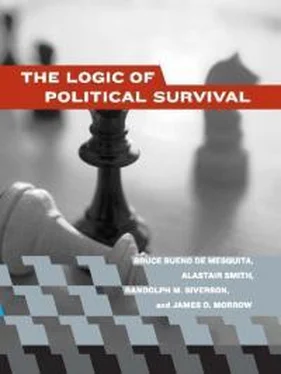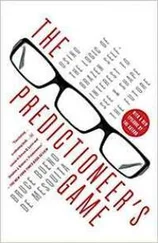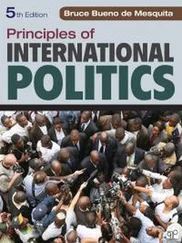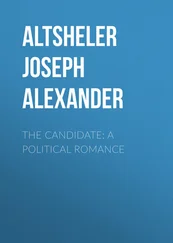Civic-Mindedness
It is pleasant to think that the brutish behavior of a King John or a Genghis Khan, his approximate contemporary, is a thing of the past, a relic of a less civilized age. It is pleasant to think that most contemporary political leaders are motivated by high ideals in their pursuit of office; that the opportunity to do good works—not the quest for power—is more prominent a motive today than it was centuries ago. We are agnostic on the question of whether modern-day leaders are more high-minded than their predecessors. We prefer simply to enumerate the benefits of office and to note that apparent civic-mindedness by leaders appears to be strongly influenced by selection institutions, so that institutions shape the behavior of leaders as much as leaders shape institutions. Certainly we are not among the first to make this observation. David Hume, writing more than 250 years ago, noted:
It is true, those who maintain that the goodness of all government consists in the goodness of the administration may cite many particular instances in history where the very same government, in different hands, has varied suddenly into the two opposite extremes of good and bad. . . . But here it may be proper to make a distinction. All absolute governments must very much depend on the administration, and this is one of the great inconveniences attending that form of government. But a republican and free government would be an obvious absurdity if the particular checks and controls provided by the constitution had really no influence and made it not the interest, even of bad men, to act for the public good. Such is the intention of these forms of government, and such is their real effect where they are wisely constituted; as, on the other hand, they are the source of all disorder and of the blackest crimes where either skill or honesty has been wanting in their original frame and institution. (Hume [1742] 1985, chap. iii, p. 16)
One might well think of this study as a somewhat more rigorous theoretical and empirical elaboration on Hume’s contention. We reach conclusions remarkably similar to Hume’s and for similar reasons. Our analysis indicates that leaders operating under certain institutional arrangements closely associated with republican government or democracy emphasize good public policies rather than establishing secret Swiss bank accounts because good policy—that is, policy that satisfies their crucial supporters—is essential to their personal political welfare. We also show that leaders working under institutional arrangements correlated with authoritarianism are wise to establish special privileges for their backers like the special stores party members enjoyed in the Soviet Union. Doling out special privileges often is vital to their political survival. Autocrats can be forgiven bad policy, but they are not likely to survive the elimination of patronage or the corrupt benefits of cronyism. For autocrats, what appears to be bad policy often is good politics. It is no coincidence that a market exists for secret bank accounts.
Our agnosticism with regard to the civic-mindedness of leaders is part of what distinguishes our undertaking from the views of many contemporary economists. Economists share with us a concern to explain such important phenomena as economic growth and the elevation of human capital. Many economic theorists, however, departing now from a Machiavellian viewpoint, assume that leaders are benign at least when it comes to economic policies. For many economists, leaders are assumed to be interested in enhancing the welfare of their citizenry. Failure to do so is thought to be a product of ignorance or the result of constraints beyond their control that prevent them from implementing the necessary economic reforms. 2Such distinguished and influential economists as Joseph Stiglitz or Paul Krugman focus on the failure of governments to apply the central principles of economics to their formation of public policy. They see the failures of growth as being explained by the mistaken policies followed by national governments. James Robinson (1998, 13), for instance, quotes Paul Krugman as saying, “It makes considerable sense for the World Bank . . . to push very hard for liberal policies in developing countries, given their [i.e., developing countries’] demonstrated tendencies to engage in economically irrational interventions.” Our departure from accounts by some economists does not lie in any disagreement on the principles of economics, but rather on the focus of how to fix the problem.
We do not subscribe to the notion that government leaders fail to understand what policies represent good applications of the economic principles that lead to growth. Rather, we share the concern of many political scientists and economists to understand how political institutions influence economic growth and social welfare. Persson and Tabellini (2000), for instance, find that parliamentary democratic systems tend to be more corrupt than presidential systems. We argue that this is related to the vote total required to form a wining coalition in these two different types of democracy. Acemoglu and Robinson (2000) investigate the dependence between income inequality and the expansion of the voting franchise. They maintain that societies with high inequality are likely to be politically unstable, while societies that achieve relative income equality through redistribution tend to consolidate their hold on democracy. This view is broadly consistent with that expressed by Robert Barro (1996, 1997) or Adam Przeworski et al. (2000), each of whom contends that democracy satisfies the wants of the median voter, producing stability and a decline in growth rates. The median voter has a below-average (mean) income and so is more likely to support redistributive policies than growth-oriented policies. We contend that political institutions significantly influence income levels, income distribution, and growth rates and that a large winning-coalition structure is particularly conducive to income growth. Other aspects of democracy may work against growth, but not coalition size. Further, we model economic performance as an endogenous product of political institutions and then suggest how institutionally induced economic performance influences subsequent institutional or political stability. Thus, we offer an account of the causes and consequences of coups, revolution, and institutional change that is complementary to but also different from that suggested by others (Jackman 1978; Muller and Seligson 1987; Londregan and Poole 1992). At the same time our model agrees with the findings of William Niskanen (1997), Mancur Olson (1993), Ronald Wintrobe (1998), and David Lake and Matthew Baum (2001) that rent seeking is more common in autocracy than in democracy. We derive this distinction while assuming that all political leaders, regardless of their institutional setting, have a common utility function that emphasizes first holding onto (or gaining) office and second maximizing their personal income while in office.
Our focus is on political incentives and institutions that encourage or discourage leaders from promoting economic policies conducive to growth and general social welfare. We assume that political leaders are self-interested and that their actions are chosen to be politically beneficial to themselves. Bad economic policies are not, in our view, obviously irrational; rather they are a phenomenon to be explained by a process of rational decision making by self-interested leaders. The explanation we offer leads to some surprising conclusions that suggest a departure from the policy recommendations following from theories focused on economic rationality alone. Those theories ignore and therefore fail to incorporate political rationality into their construction of policy recommendations.
Читать дальше












